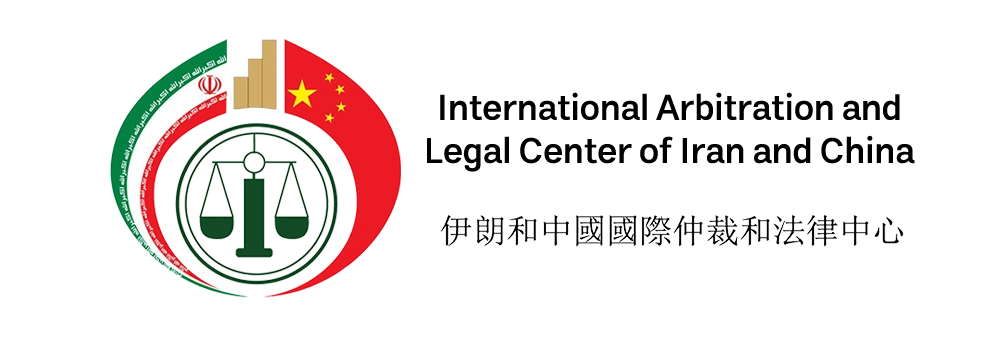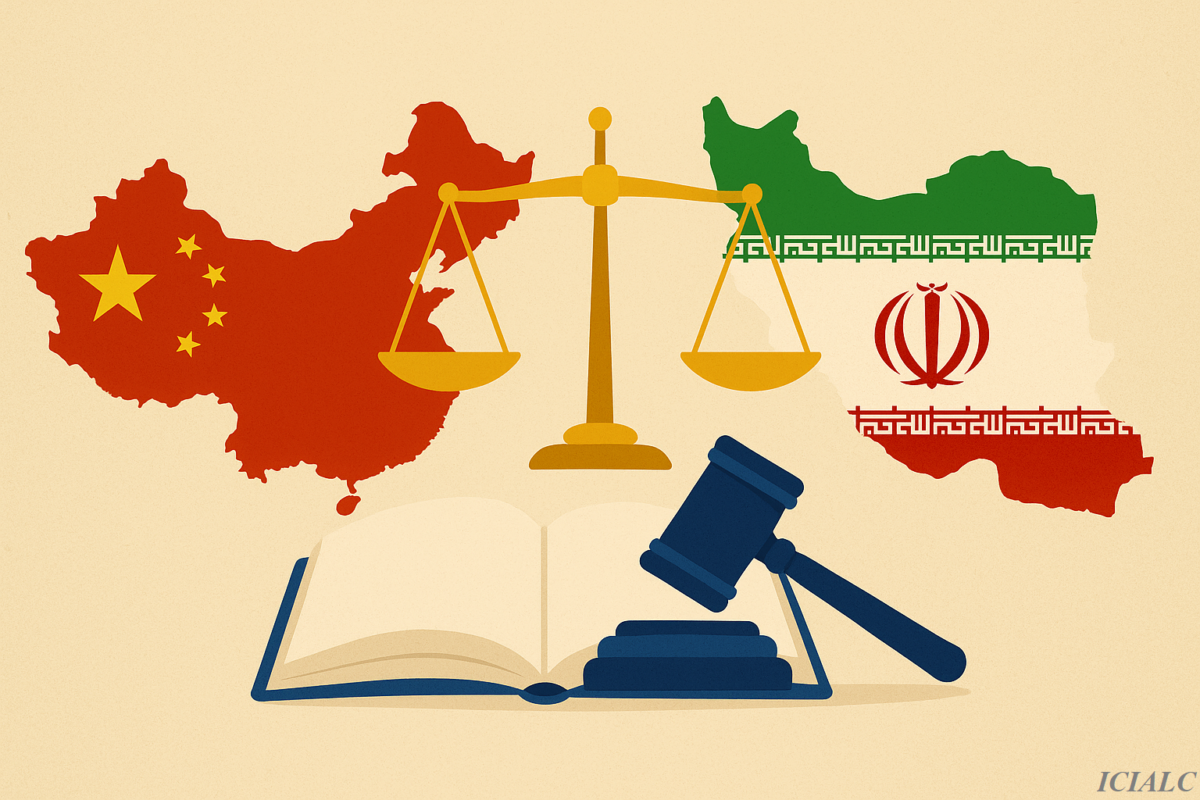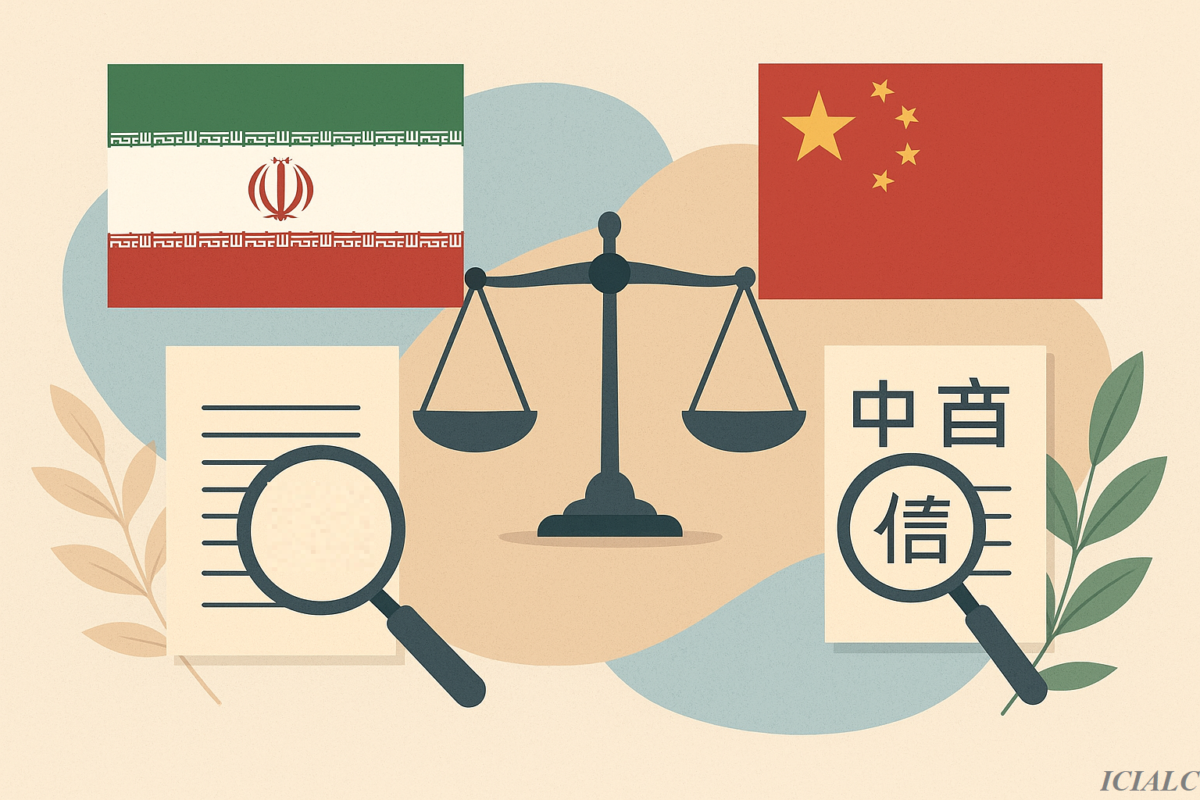Contracts constitute the cornerstone of commercial relations among individuals, companies, and states. In trade relations between Iran and China, given the high volume of economic transactions, breach of contract can lead to considerable losses for the parties involved. Therefore, understanding the sanctions and remedies for breach of contract under both legal systems is of significant importance. The purpose of this article is to examine the sanctions and remedies in Iranian and Chinese law and to compare them, thereby enabling business actors to make more informed decisions.
Concept of Breach of Contract in Iranian and Chinese Law
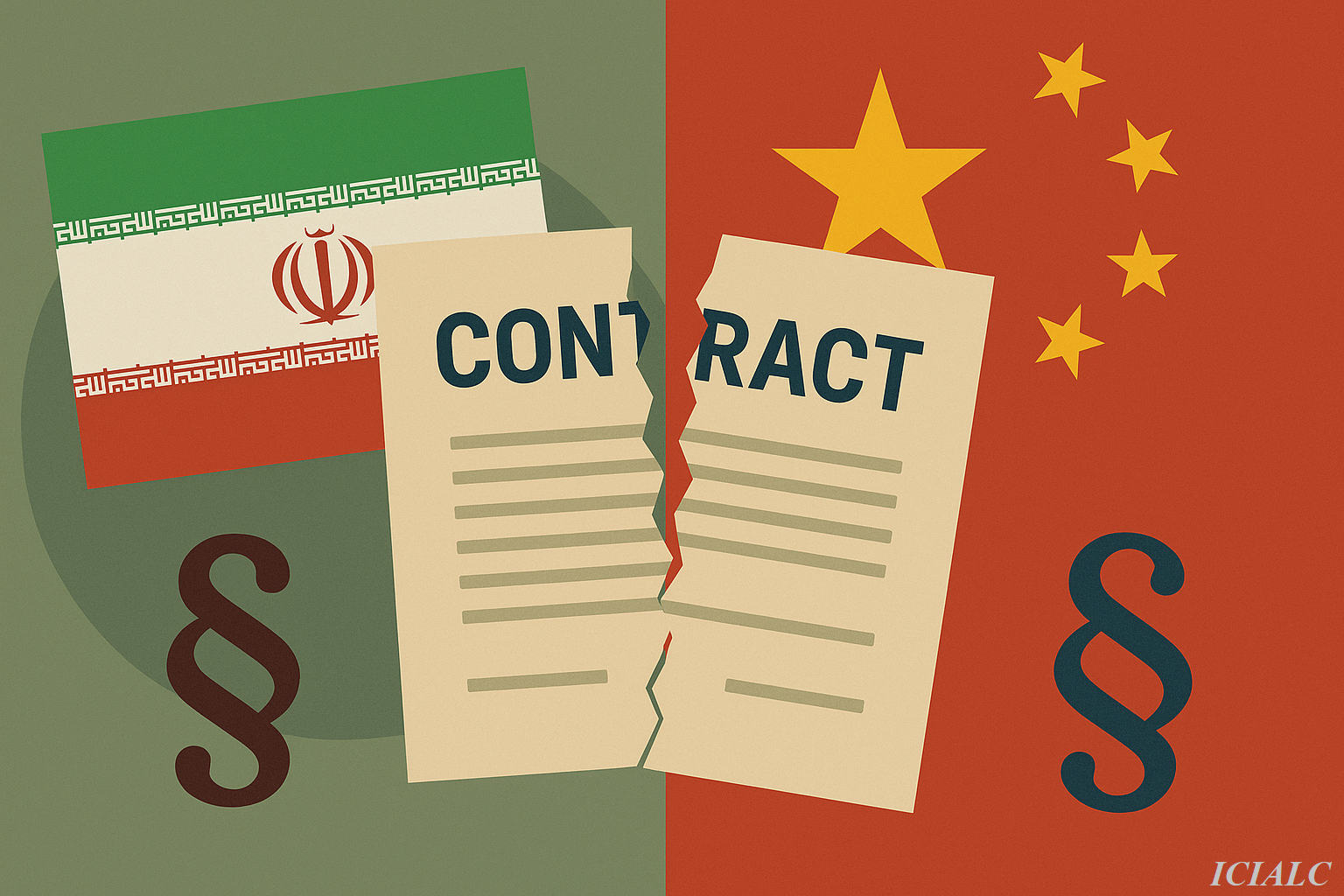
Contracts, as fundamental pillars of legal and commercial relationships, are valuable only when the parties remain committed to their obligations. However, in practice, the possibility of a breach always exists, which may cause severe financial and reputational damages. Understanding the concept of breach of contract in various legal systems including those of Iran and China is essential, as it forms the basis for determining the applicable sanctions and compensation mechanisms. Accordingly, the concept of breach of contract will first be explained in Iranian law and then examined in Chinese law.
Breach of Contract under Iranian Law
In Iran’s legal system, the principle of (fulfillment of contractual undertakings) holds a special status. Under the Civil Code, a breach of contract arises where one party:
Refrains from performing its obligations,
Performs the obligation incompletely, or
Acts contrary to the contractual terms and conditions.
Articles 221 to 230 of the Iranian Civil Code directly address the liability of the breaching party, providing for remedies such as specific performance, damages, and, in certain cases, termination (rescission). The Commercial Code also stipulates that, in commercial agreements, non-performance of obligations or delay in performance constitutes breach of contract.
Thus, under Iranian law, breach of contract is not confined to absolute refusal to perform, but also encompasses defective or non-conforming performance.
Breach of Contract under Chinese Law
Under Chinese law, pursuant to the Contract Law (in effect until 2020 and subsequently incorporated into the new Civil Code), breach of contract is defined as “non-performance, incomplete performance, or defective performance of contractual obligations.” The principle is that the parties must fulfill the terms of their agreement, and that any failure activates civil liability.
A key feature of Chinese law is:
Strong emphasis on specific performance, with courts often ordering the defaulting party to perform the original obligation.
Damages, which constitute another major remedy, include direct losses, additional costs, and even lost profits.
Overall, in China, breach of contract is deemed not only a violation of contractual trust but also a threat to market order, leading to a strict enforcement approach toward defaulting parties.
Types of Remedies and Sanctions for Breach of Contract
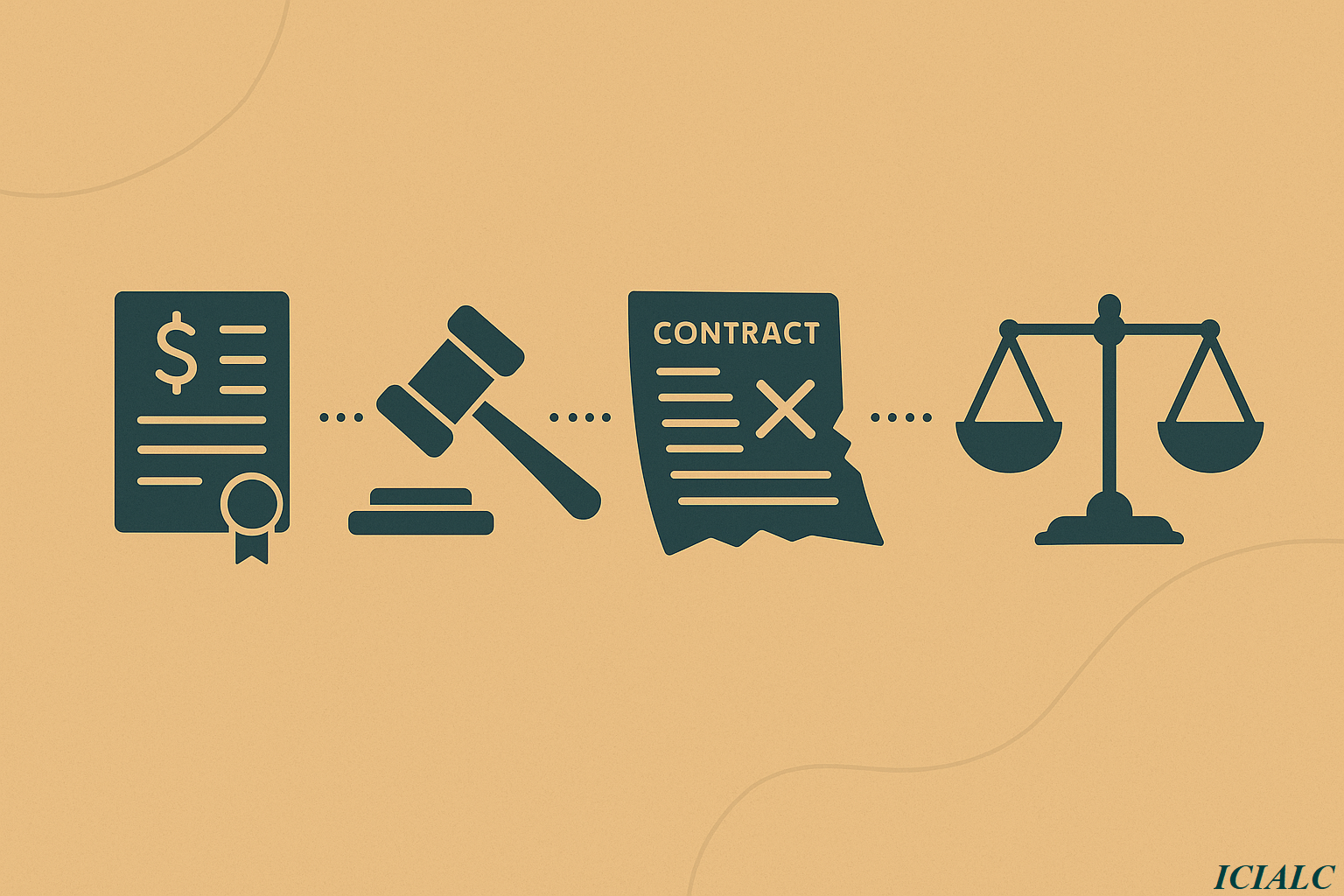
Specific Performance
Both Iranian and Chinese law are founded on the principle that contracts must be carried out in exact accordance with the terms agreed upon. Where a party defaults, courts or arbitral tribunals may compel the obligor to perform the principal obligation. In Iran, this principle is enshrined as the duty of “specific enforcement of contractual obligations.” Similarly, in Chinese law, specific performance is regarded as one of the most essential remedies, with courts typically seeking to enforce actual performance of the contract.
Termination (Rescission)
Termination refers to dissolution of the contract by one party in case of a fundamental breach. Under Iranian law, termination generally requires the availability of a statutory ground (a contractual option) or an express termination clause; rescission without legal justification is not accepted. In Chinese law, termination is also subject to specific conditions, such as fundamental breach or impossibility of performance. Moreover, under Chinese law, termination usually requires compliance with legal procedures and, in many cases, confirmation by a court or arbitral tribunal.
Damages
Compensation for losses is a common remedy under both legal systems. In Iranian law, pursuant to the Civil Code, damages include actual losses and potential gains, provided that a causal link between the breach and the loss exists. In Chinese law, damages are of major importance and may cover not only direct losses but also additional expenses and lost profits.
Special Remedies in International Trade
In cross-border commerce, international instruments such as the United Nations Convention on Contracts for the International Sale of Goods (CISG) play an important role. China is a contracting state to the CISG, while Iran has yet to accede. The CISG provides for remedies such as specific performance, termination, damages, and even reduction of price. Thus, in Iran–China commercial contracts, if the parties incorporate the CISG or reference international rules, a broader range of remedies becomes available.
Remedies for Breach of Contract under Iranian Law
Legal Foundations
The principal bases of contractual remedies in Iran are:
The Civil Code (Articles 221–230): providing for specific performance, damages, and termination.
The Commercial Code: particularly with regard to commercial and transport contracts, stipulating certain specific consequences of breach.
Commercial customs and practices: which often supplement statutory law in interpreting obligations and remedies.
Judicial Practice and Practical Application
In practice, Iranian courts primarily favor specific performance unless performance is rendered impossible, in which case damages are awarded. In cases of fundamental breach, rescission is possible.
However, a major practical obstacle in Iran–China trade relations is that Iranian court judgments cannot be readily enforced in China due to the absence of a bilateral judicial cooperation treaty for mutual recognition and enforcement of judgments. Consequently, commercial actors typically resort to including arbitration clauses in international contracts to ensure enforceability of awards across borders.
Remedies for Breach of Contract under Chinese Law
Applicable Legal Framework
Contractual remedies in China are primarily governed by:
The Chinese Contract Law of 1999 (in effect until 2020), and
The Chinese Civil Code of 2021, incorporating and expanding upon contractual provisions, including termination and damages.
Judicial and Arbitral Approach
In China, the principle of specific performance predominates. Courts generally order the breaching party to perform the actual obligation, resorting to damages only if performance is impossible. Arbitration, however, plays a particularly vital role. Institutions such as CIETAC (China International Economic and Trade Arbitration Commission) are widely relied upon in international commercial disputes. Crucially, since China is a signatory to the 1958 New York Convention, arbitral awards from many countries (including Iran) are enforceable in China. By contrast, foreign court judgments lack the same enforceability.
Comparative Analysis of Remedies
Similarities
Both systems prioritize fulfillment of contractual obligations.
Both recognize termination and damages as fundamental remedies.
Differences
In Iran, termination is largely contingent on statutory or contractual grounds (options/conditions), while in China, courts play a more significant role in assessing whether termination is justified.
Enforcement of Iranian court judgments in China faces serious obstacles due to the absence of a treaty, whereas international arbitral awards enjoy broader enforceability in China.
Challenges
Lack of bilateral legal cooperation treaty: preventing recognition and enforcement of judgments.
Divergent legal practice and enforcement: Iranian courts emphasize specific performance and then damages, while Chinese courts combine specific performance with a stricter approach to damages (particularly lost profits).
Conclusion and Practical Recommendations
Understanding sanctions and remedies for contractual breach in Iran and China is essential for traders, companies, and international legal practitioners. Divergences in substantive rules, judicial practice, and enforcement mechanisms can, if disregarded, lead to significant financial and reputational harm.
Practical Recommendations:

Clear Contractual Provisions: Contracts should expressly and precisely stipulate all obligations, terms, breach conditions, and remedies.
Dispute Resolution Clauses: Inclusion of arbitration clauses particularly referencing reputable institutions such as the Iran–China International Arbitration and Legal Center ensures that awards are enforceable in both jurisdictions.
Specialized Legal Advice: Prior to contract conclusion, parties should consult lawyers specialized in Iran–China trade and international commercial law.
Contractual Risk Management: Supplementary mechanisms such as export credit insurance, bank guarantees, or advance payments can mitigate risks related to breach.
Summary
In essence, combining legal knowledge with precise contractual drafting is the best method to manage the risks of contractual breach and secure legal certainty in Iran–China trade relations. Utilizing international arbitration, especially through the Iran–China International Arbitration and Legal Center, can reduce enforcement risks, enhance mutual trust, and strengthen the stability of commercial ties.
